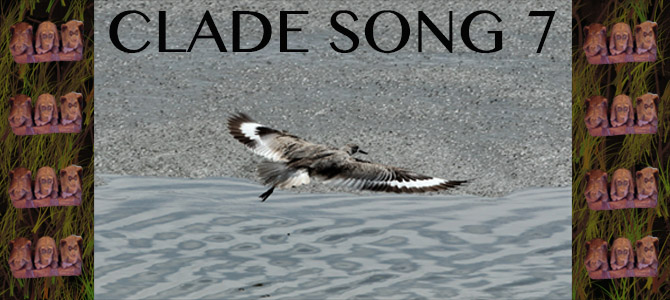|
read by Akim Golubev
Жираф
Сегодня, я вижу, особенно грустен твой взгляд,
И руки особенно тонки, колени обняв.
Послушай: далеко, далеко, на озере Чад
Изысканный бродит жираф.
Ему грациозная стройность и нега дана,
И шкуру его украшает волшебный узор,
С которым равняться осмелится только луна,
Дробясь и качаясь на влаге широких озер.
Вдали он подобен цветным парусам корабля,
И бег его плавен, как радостный птичий полет.
Я знаю, что много чудесного видит земля,
Когда на закате он прячется в мраморный грот.
Я знаю веселые сказки таинственных стран
Про черную деву, про страсть молодого вождя,
Но ты слишком долго вдыхала тяжелый туман,
Ты верить не хочешь во что-нибудь, кроме дождя.
И как я тебе расскажу про тропический сад,
Про стройные пальмы, про запах немыслимых трав...
Ты плачешь? Послушай . . . далеко, на озере Чад
Изысканный бродит жираф. |
read by Akim Golubev
Giraffe
Today I see your gaze is especially sad,
And your hands embracing your knees, especially thin.
Listen: far, far away on Lake Chad
A slender giraffe is grazing.
Bestowed with the luxury of harmonious grace,
Its skin is decorated in patterns, so magical
That only the shadow patterns of moonlit nights
Across the dashing waves of the wide lake rival.
From a distance, it’s like a ship’s colored sail,
Its gait is smooth like the joyful flight of birds.
I know earth will witness wonders at nightfall
When it flees to its grotto of marble and hides.
I can tell quaint tales of far exotic lands,
Of a black maiden and a young chief’s passion,
But for too long you have been breathing in
This heavy fog trusting in nothing but rain.
And I can tell you of a tropic garden’s shade
With harmonious palms and aromatic grasses . . .
Are you crying? Listen . . . far away on Lake Chad
A slender giraffe is grazing.
|



